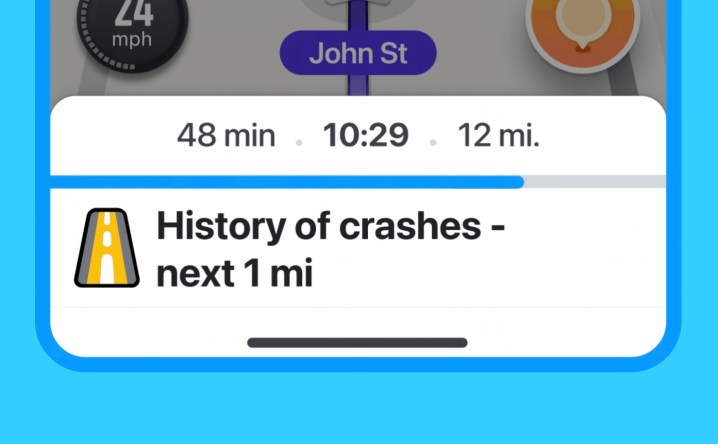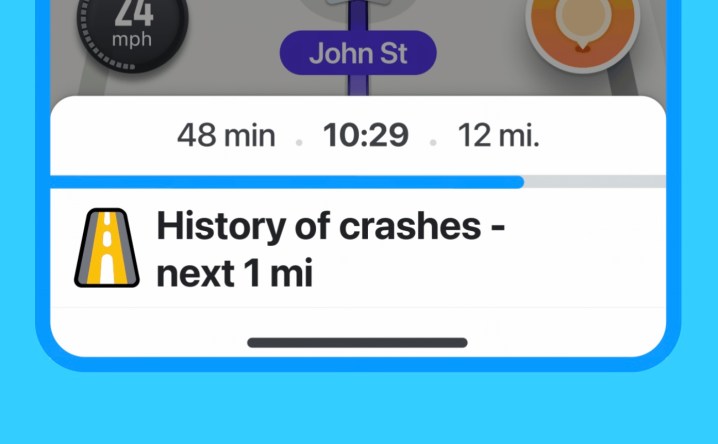
As a driver, the worst way to learn about a stretch of road with a history of crashes is by ending up in one yourself.
Locals will likely already have that information to hand and will therefore approach a hazardous area with caution, but drivers not in the know face an elevated risk as they pass through such places.
But now Waze can help.
The Google-owned navigation app has just launched a new “crash-history alerts” feature to let drivers know when they’re approaching an accident-prone road.
“Every day, almost 3,700 people are sadly killed globally in crashes involving cars, buses, motorcycles, bicycles, trucks or pedestrians,” Waze said in a post announcing the important new feature. “Crash injuries are estimated to be the eighth leading cause of death globally — and Wazers around the globe report accidents about every two seconds. But, what would happen if you knew in advance that you were approaching a road that had a history of crashes?”
The crash-history alerts feature draws on reports from the Waze community, and like everything else these days apparently has some AI smarts built in, too.
If your route includes a crash-prone road, the app will show an alert before you reach that section of your journey, Waze said. According to a screenshot (top) of the feature shared by Waze, the alert will say something like: “History of crashes — next 1 mile.” A blue bar above the text will then gradually recede as you approach the hazard zone. The nature of the hazard isn’t specified, but that seems fine as a general alert like this should serve to place a driver on a heightened state of awareness.
But take note: Waze said that to keep driver distractions to a minimum, it won’t keep sending out crash history alerts for a section of road that a driver uses regularly.
Waze said the feature launches on Tuesday, so make sure that you have the latest version of the app installed to get it.
Editors’ Recommendations
Services Marketplace – Listings, Bookings & Reviews
